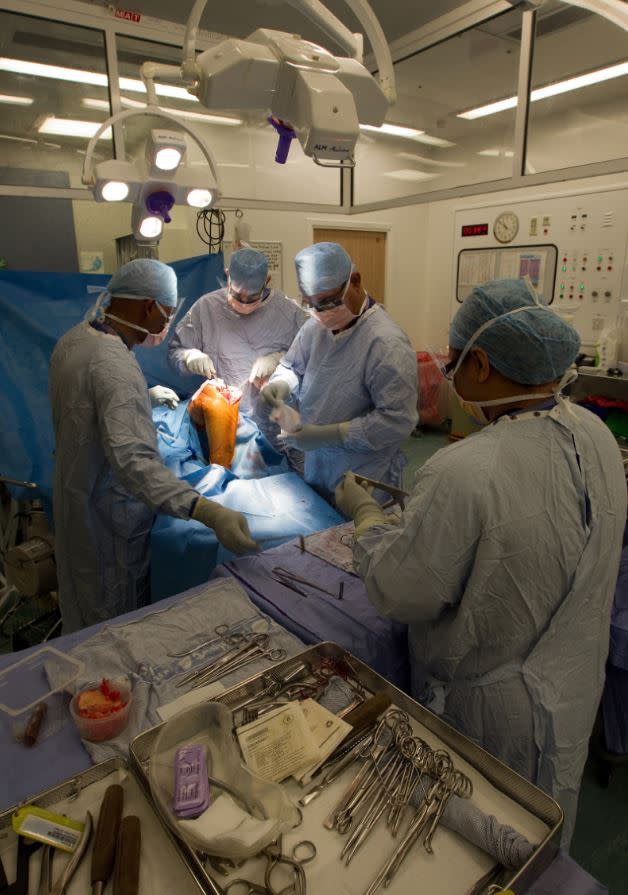Patients seeking new knees or hips will have to prove pain is stopping them sleeping

Patients in need of new knees or hips will have to be in so much pain they’re unable to sleep, thanks to new rationing plans.
Health chiefs in the West Midlands are hoping to save up to £2.1 million a year by cutting back on operations.
Their aim is a 12 per cent reduction in hip ops and a 19 per cent drop in knee replacements, according to the Health Service Journal.
The Royal College of Surgeons (RCS) described the proposals as “alarming”, adding that thousands of people would suffer arbitrary denial of treatment as a result.
MORE: Sat-nav to be part of revamped Driving Test – and there will be no more reversing around a corner
MORE: Do YOU know what your children are up to online? Almost half of British parents don’t
Stephen Cannon, vice-president of the RCS, said: “It is another example of how the huge financial strains the NHS is under are directly affecting patients. It is right to look at alternatives to surgery but this decision should be based on surgical assessment, not financial pressures.”
He added that the anticipated savings were overlooking “the longer-term impact on patients of delayed treatment, prolonged pain and potentially higher costs of treatment. For example, patients affected by these changes may require additional pain relief medication and may still require surgery further down the line.”
Redditch and Bromsgrove, South Worcestershire, and Wyre Forest hope to avoid 350 operations a year with their pre-op scoring system.
The Health Service Journal revealed that very obese patients would be refused surgery unless they could show that they had lost 10 per cent of their body weight or were in danger of losing their independence.
NHS Redditch and Bromsgrove Clinical Commissioning Group said: “If a patient feels that they require this surgery but do not meet these criteria, there is a clear appeals system via individual funding requests.”

 Yahoo News
Yahoo News 

